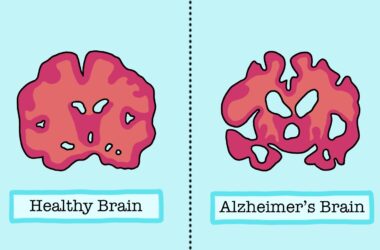The Pew Research Center found that, in all 40 nations polled, the majority of respondents believed that climate change is a very serious problem, with the most concern found in African and Asian countries.
“There has been a one and a half degree Celsius rise in temperature linked to an increase in greenhouse gases, however, consequences are slow and the health issues are indirect,” George McCourt, senior faculty lecturer in the McGill School of Environment, said. “[Ultimately,] people don’t believe in climate change because you’re not going to get cancer [right away, since the effects of climate change like] rising sea levels will not have immediate health effects.”
People need to face an immediate threat to prompt them to change, and small increases in temperature are not going to cut it, especially since these increases take a long time to materialize.
“The major problem with climate change is that it is a long-term process with a lot of fluctuations,” McCourt said.
Modern lifestyles and infrastructure are all centred around convenience, leading people to believe they are detached from potential issues of rising temperatures.
“People in the West are comfortably disconnected from the natural world,” McCourt said. “Those who are directly impacted [by climate change] are the indigenous peoples and farmers. In cities, we don’t notice it. So, we don’t feel these things because these changes are occurring over 200 years so, it’s difficult to make [city folk] realize this.”
Strong dependence on fossil fuels makes societal change difficult to achieve.
“Our transport and electric systems are all interconnected with fossil fuels, since our infrastructure is designed to run on [them],” McCourt said.
Transforming energy systems will cause a huge disturbance in the status quo, especially since society’s dependence on fossil fuels extends past industry.
“We are addicted to the fossil fuel economy,” McCourt said. “So making this kind of change is going to be huge.”
Dr. Nicolas Kosoy, associate professor in McGill’s Department of Natural Resource Sciences, pointed out, it is almost impossible to curb all fossil fuel usage—at least right away.
“Fossil fuels are an excellent energy carrier with a large energy density, but this cannot be our only source of energy,” Kosoy explained. “Overall, our energy demand needs to be limited and this limit has to do with our energy supply.”
Therefore, finding alternatives is a complex issue.
“We should rank energy alternatives in terms of their ability to satisfy energy demand, environmental impact, and long term stability of our systems [while] also paying attention to profit,” Kosoy said.
Our lifestyle of convenience coupled with the pessimistic outlook of the environmental movement has harboured a culture of indifference towards climate change.
“The [negativity of the] environmental movement has [created] a fatigue amongst the people,” McCourt explained.
Environmentalism has not always been the flashiest of causes, and many have questioned why they should get involved. However, as sustainability gains traction as a popular trend, a new shift in values is emerging.
“There has been an increase in sustainability [that] has given people more hope,” McCourt said. “A new hope to sustain themselves and the planet.”
Kosoy urges that it is the collective efforts of a community that will foster necessary efforts to counteract climate change.
“[We need to] collectively decide to grow our own food or change land use—these are our actions that are going to change society,” Kosoy said. “Not [just] what is done by one person, but by a society that will change consumption practices.”
Although climate change is a general and man-made concern, we are slowly making progress in the right direction. There is a new trend of sustainability that will drive many to adopt a more environmentally-friendly lifestyle. Though progress may be slow, the movement has come a long way.










aa
Very good and Objective! It’s always good to have a pertinent and objective point of view of the critical situation in this world and how common people can make a difference!